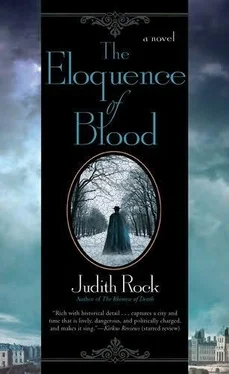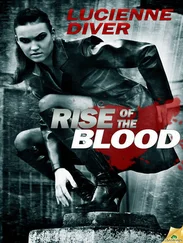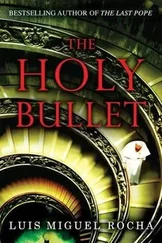Judith Rock - The Eloquence of Blood
Здесь есть возможность читать онлайн «Judith Rock - The Eloquence of Blood» весь текст электронной книги совершенно бесплатно (целиком полную версию без сокращений). В некоторых случаях можно слушать аудио, скачать через торрент в формате fb2 и присутствует краткое содержание. Жанр: Исторический детектив, на английском языке. Описание произведения, (предисловие) а так же отзывы посетителей доступны на портале библиотеки ЛибКат.
- Название:The Eloquence of Blood
- Автор:
- Жанр:
- Год:неизвестен
- ISBN:нет данных
- Рейтинг книги:5 / 5. Голосов: 1
-
Избранное:Добавить в избранное
- Отзывы:
-
Ваша оценка:
- 100
- 1
- 2
- 3
- 4
- 5
The Eloquence of Blood: краткое содержание, описание и аннотация
Предлагаем к чтению аннотацию, описание, краткое содержание или предисловие (зависит от того, что написал сам автор книги «The Eloquence of Blood»). Если вы не нашли необходимую информацию о книге — напишите в комментариях, мы постараемся отыскать её.
The Eloquence of Blood — читать онлайн бесплатно полную книгу (весь текст) целиком
Ниже представлен текст книги, разбитый по страницам. Система сохранения места последней прочитанной страницы, позволяет с удобством читать онлайн бесплатно книгу «The Eloquence of Blood», без необходимости каждый раз заново искать на чём Вы остановились. Поставьте закладку, и сможете в любой момент перейти на страницу, на которой закончили чтение.
Интервал:
Закладка:
“I couldn’t let them beat me to a pate, mon pere,” Guiscard said reasonably. “Since I hadn’t done any of what they said.”
“Have Frere Brunet see to your hands as well as your face. Did you know the two men?”
Guiscard shook his head. “I think one was an apprentice, but the other was older. I didn’t know them.”
“Did anyone else see what happened?”
“I don’t know, mon pere. It was snowing hard and when I got clear, I ran.”
Le Picart nodded. “I am glad your hurts are no worse, mon frere. Frere Martin, please see him to the infirmary.”
When the lay brothers were gone, Le Picart sank into his chair again, pressed clasped hands against his lips, and closed his eyes, shaking his head slightly. Charles sat down and waited, not sure whether the rector was praying or simply deploring what had happened.
“So it has started.” Le Picart let his hands drop and looked up. “And as soon as the shorter vacation is over and we have day students coming and going in the streets, it’s going to get worse. Much worse.” He glanced at the black, one-handed clock on the side table. “If Henri Brion does not come to me this afternoon, you will have to find him and bring him here.”
“Shall I go to the Chatelet now, mon pere? He may well be there searching for the donation, if he doesn’t yet know that Mademoiselle Mynette is dead. He was not at home this morning, and both his daughter and his uncle said they had not seen him yet today.”
“Yes, go there. We will pursue our legal claim to this money, and I must speak with him about how to proceed without further inflaming rumor and gossip. And after he tells me that, he is also going to tell me why he kept knowledge of this donation from us.”
Charles stood up, bowed, and went to the door. Then he turned back, frowning. “How did they know?”
“What?”
“The men who attacked Frere Guiscard must have known that we stand to get the Mynette patrimoine. Why else would they link a Jesuit to Martine Mynette’s murder? So how did they know that the money now comes to us?”
They looked at each other in silence.
Le Picart said slowly, “I have spoken of the bequest to no one outside the Society. No one at all beyond the college except my superior, our Provincial. Have you?”
“Only to you and Pere Damiot, mon pere.”
“Very well. Go now, I want a report from you before midday. Meanwhile, I will discover who has spread our affairs abroad.”
Charles went, glad he had to face only the weather and not Le Picart’s inquiry.
Chapter 6
Hunched against the snow falling around him, Charles crossed the Petit Pont and most of the Ile de la Cite, and then veered right to cross the Pont au Change to the Chatelet. In the old days, money changers had had their banques, or benches, on this bridge. And how ironic, Charles found himself thinking, that the money changers’ bridge led to a prison and law courts. Where money seemed so often to lead, mortals being unable to do without it, and so often unable to do honestly with it.
In spite of the snow, he slowed as he came to the triangular islet of houses at the north end of the bridge, where the roadway split into a Y. He squinted against the snowflakes, looking up at the larger than life-size bronze statues of the royal family crowning the south-facing point of the triangle, the child Louis XIV standing between his parents, Louis XIII and Anne of Austria. Another family not without its problems, he thought, brushing snow off his eyelashes, and taking the left-hand branch of the Y around the triangle, the way that led into the Place du Chatelet. The looming old Chatelet had been the city’s northern gate when all of Paris was contained on the Ile de la Cite, just as the Petit Chatelet on the Left Bank had been its southern gate and was still the entrance to the Petit Pont.
Charles had a glimpse of thick walls, round stone towers, and conical blue roofs as he crossed the Place, and then the torch-flaring darkness of an arched passage swallowed him into the ancient fortress. He came out onto the roadway dividing the Chatelet’s prison from its law courts. He’d been there once before, but at night, and now, in daylight, he was shocked by how dilapidated the buildings were. Fallen stones and broken roof tiles lay along the road, and a little way ahead was what looked like half a fallen wall. He’d heard Jesuits arguing over whether Julius Caesar had built the Chatelet, which certainly seemed possible, since the Romans had built a town where Paris now stood. But even if it hadn’t been Caesar who built it, the crumbling fortress was unimaginably old.
Inside, though, the modern love of litigation pursued its tortuous path. Christmas season though it was, a few clerks came and went in the echoing stone-vaulted anteroom, and two lawyers in voluminous curling wigs and silky black robes with ribbons on their sleeves stood arguing loudly, while their clients glowered at each other. Charles had grown up listening to his father’s diatribes about these new men. They had bought their posts from the king, just as notaries like Monsieur Brion had. But notaries occupied the lowest rungs of the legal ladder and ranked only as bourgeoisie de Paris. These lawyers and judges, wealthy and with University law degrees, were the modern noblesse de la robe-so called because of their long, beribboned gowns-and they considered themselves every bit as noble as the old noblesse de l’epee, the nobility of the sword. Which, of course, outraged the old sword families. Mostly, Charles suspected, because the new nobles of the robe were far richer than many of the old nobility, who had lost their money along with their ancient military function. Hereditary nobles could still buy royal military commissions, though, as Charles’s father-a very minor noble-had done for him when he’d insisted on soldiering. But even there, there was less and less place for the old ways. The army Charles had fought in had been the minister of war’s increasingly reorganized, state-run army, no longer the old motley collection of lords and their men-at-arms, and their shifting allegiances.
Charles spotted a clerk sitting at a table beside a wide archway in the far wall, but as he started toward him, the man sprang up, grabbed a ledger, and turned toward the arch.
“Monsieur,” Charles called, “one little moment of your time, I beg you.”
The clerk swung around, not so much stopping as hovering, and regarded Charles across the ledger. “What is it, mon pere?”
Charles had mostly given up trying to explain to laymen that, though he looked like a fully professed Jesuit, he was only a scholastic and not yet a “pere.”
“I am seeking a notary, one Monsieur Henri Brion.”
“Brion?” The little man’s heels came to rest on the floor and he shifted the ledger to one arm. “Haven’t seen him. Notaries are usually wall to wall here, and even today I can find you one, a much better one if-”
“No, I thank you, monsieur, it is Monsieur Brion I need.”
“Then your best chance is the coffeehouses. Try The Saracen’s Nose. Just beyond the other end of the Pont au Change.”
The clerk had risen onto his toes again, poised for flight, and Charles put out a hand to stop him. “When did you see Monsieur Brion here last? I was told he has been here daily, searching for a document.”
“Him? Hah! That one’s never here, mon pere. Can’t remember when I saw him last. And I see most who come in, my bureau is just there.” He pointed at the big littered table. “How they expect me to work in such a dismal excuse for an office, I couldn’t say. Ah, well. We’re the law here, things aren’t supposed to make sense!” With another bark of laughter to mark his joke, he shot through the arched door.
Читать дальшеИнтервал:
Закладка:
Похожие книги на «The Eloquence of Blood»
Представляем Вашему вниманию похожие книги на «The Eloquence of Blood» списком для выбора. Мы отобрали схожую по названию и смыслу литературу в надежде предоставить читателям больше вариантов отыскать новые, интересные, ещё непрочитанные произведения.
Обсуждение, отзывы о книге «The Eloquence of Blood» и просто собственные мнения читателей. Оставьте ваши комментарии, напишите, что Вы думаете о произведении, его смысле или главных героях. Укажите что конкретно понравилось, а что нет, и почему Вы так считаете.












